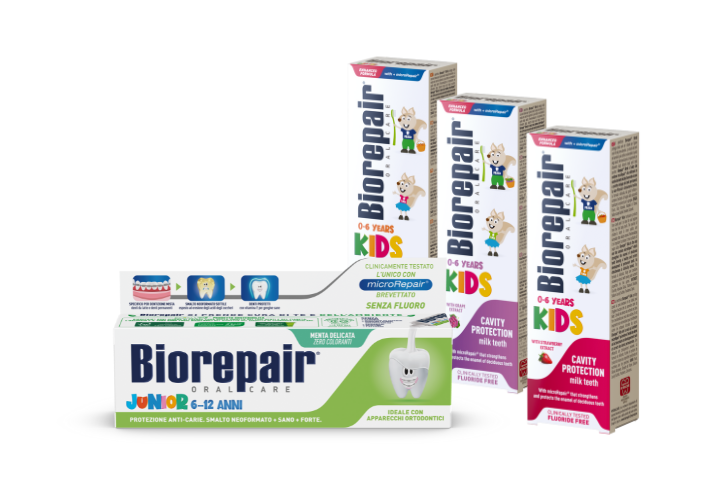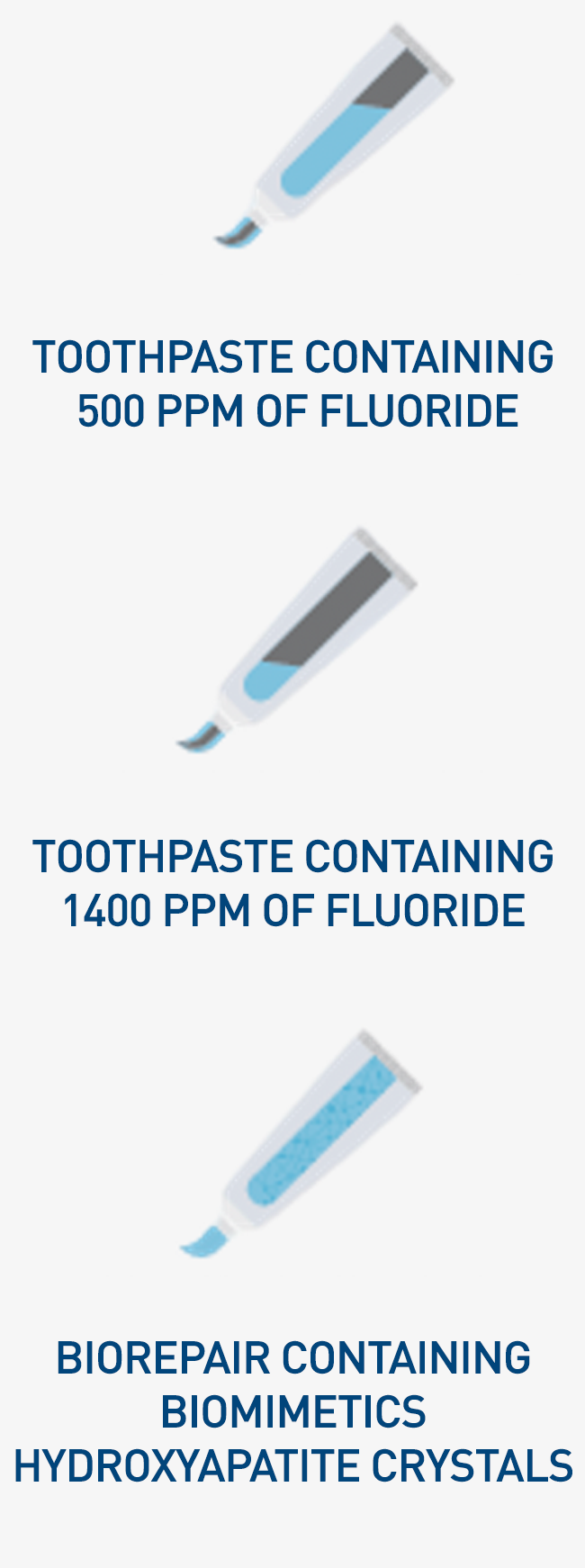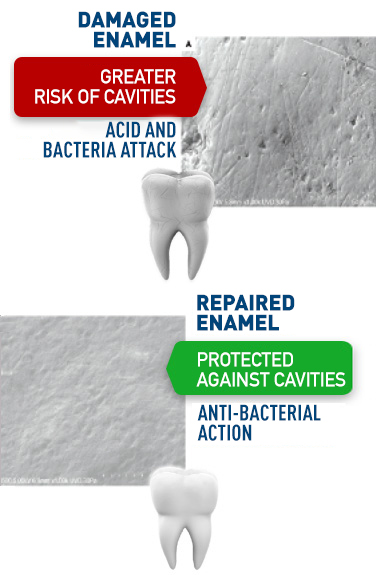 Products
Products
 Microrepair for enamel care
Microrepair for enamel care Enamel
Enamel  Why we are fluoride-free
Why we are fluoride-free
- Toothbrushes and Accessories
 Gums Problems
Gums Problems- Sensitivity
 Mouthwash
Mouthwash- Professional Area
 Gums Problems
Gums Problems Mouthwash
Mouthwash

The entire Biorepair range has been created without the use of fluoride to limit absorption and preserve the integrity of the teeth and gums.
For years we have used fluoride to protect our teeth, giving Sodium Fluoride tablets to our children. Over time, however, the scientific community has uncovered effects and risks caused by excessive consumption. Fluoride can, in fact, cause Fluorosis, a disease that can result in slight alterations to the translucency of the enamel and possible cracks on the teeth. The European Community has clearly set out that the minimum dose of fluoride that can lead to Fluorisis is 0.08-0.1 mg/Kg/die. The European Directive 2009/129/EC limits the use of toothpaste containing fluoride (concentration range 0.1 to 0.15%) to small amounts and under adult supervision.


The innovative formula is produced with the use of both microRepair® and hydroxyapatite crystals made of the same substance as the teeth which attach to the surface of the enamel with each use, re-mineralising it and protecting the teeth from cavities, plaque and sensitivity. The microRepair® particles bind naturally to the enamel on the teeth. They penetrate the micro scratches and delicately re-coat the surface, fully repairing the enamel instantly. They also play an important role in protecting milk teeth against cavities and encouraging the growth of strong, healthy permanent teeth as well as providing total protection to children's mouths.


Why fluoride-free toothpaste
is important



The Biorepair fluoride-free kids and Junior range is safe and can be used by children under the age of 6 even without adult supervision. In vitro tests on enamel erosion have shown that Biorepair is twice as effective as a normal fluoride toothpaste because the microRepair® particles settle on the enamel forming a layer of hydroxyapatite that effectively protects against acid attack.
In 2018, an in vitro test was run whichcompared three products:




Bossù et al. Enamel remineralization and repair results of Biomimetic Hydroxyapatite toothpaste on deciduous teeth: an effective option to fluoride toothpaste. J Nanobiotechnol (2019) 17:17

